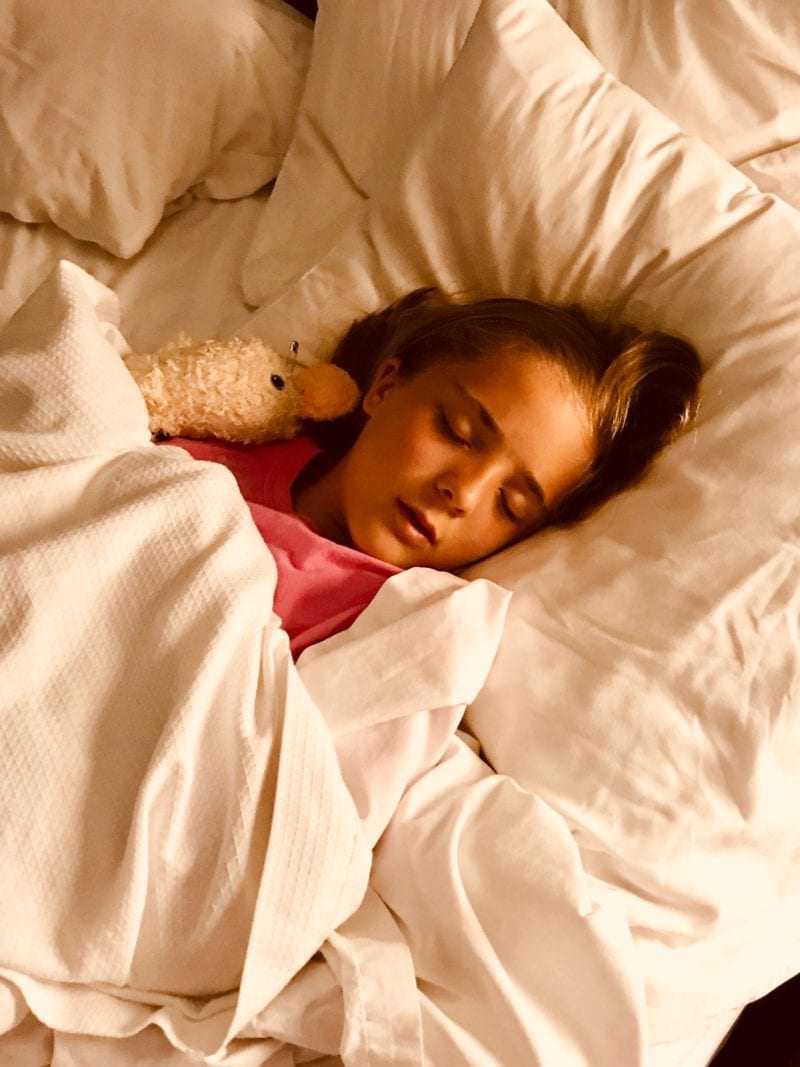To create and recall firm memories about an emotional situation, otherwise known as “emotional memory,” children need a lengthy nap plus quality sleep the next night, new research suggests.
It’s possible that the combination of such sleep also helps children settle and avoid the giddy highs and grumpy lows of young childhood, lead author Rebecca Spencer, PhD, University of Massachusetts, Amherst, told Medscape Medical News.
In other words, the “emotional baggage” of an unprocessed memory could affect not just memory but also impulse control and how severely children react to stimuli.
In the study, benefits were not shown immediately after napping. However, the 2- to 5-year-olds who napped for a mean of 70 minutes followed by overnight sleep had better emotional-memory recall the next day than those who had only the overnight sleep but no naps.
The non-nappers also showed significant “decay” in their memories 24 hours later.
“It’s emotional baggage at a neural level,” Spencer said. “We need to unload that emotional baggage, and sleep is doing that. You come back with a clean slate and from an emotional challenge better. You’ve cleaned your emotional state. It’s not in short-term storage anymore, it’s moved to long-term storage.”
She added that this correlation between nap plus sleep is “what we think is unique” in the study. “We think each bout of sleep is doing its own function to move emotional memories into long-term storage.”
The study was published online August 22 in Scientific Reports.
Napping Policies
Spencer and her team had been studying sleep and cognitive function in adults for years when news came out that Massachusetts was considering instituting public preschool.
That move prompted questions about whether naps were necessary, as policymakers attempted to design curricula. Naps in Massachusetts are limited to 45 minutes, with children allowed to opt out of sleep.
“There was no evidence to support why one might keep the nap” or how long the nap should last, Spencer said. “So we thought, ‘Well, let’s crunch the numbers and find out’.”
The investigators recruited 64 children aged 34 to 64 months (43 were assigned female at birth; mean age, 51.55 months) to look at neutral faces paired with “mean” or “nice” statements. Children with a diagnosis of sleep or neurologic disorders or learning or developmental disabilities were excluded from the study.
Researchers tested memory at three points: one right after the children were exposed to the images (baseline); one after nap period, during which children randomly assigned to take naps did so; and one 24 hours later. They compared memory within individuals to map how memory consolidated over time.
In the meantime, they also used polysomnography in a subset of patients to assess the type of sleep the children were getting at night and during naps.
Slow-Wave Activity and REM Sleep
What the investigators expected was that the children who napped would exhibit better emotional recall after the nap than they had before the nap, Spencer said. And they suspected that overnight sleep might improve emotional recall for non-nappers due to rapid eye movement (REM) sleep memory consolidation.
But “that’s not what we found,” she said.
Instead, they found that emotional memory actually decayed in nappers when tested directly after the nap. Non-nappers were not affected.
Meanwhile, 24 hours later, the nappers significantly increased their recall while non-nappers showed “significant forgetting” (P = .039). The effect was even stronger within children who were habitual nappers (P = .016).
“Naps were beneficial across habitual nappers and non-nappers, but what happened to habitual nappers was that [daytime] wake was more dangerous,” Spencer said.
“It may be that habitual napping is driven by the development of the brain. Those who are still napping may have less mature memory processing,” she added.
Spencer noted that because the researchers wanted to know why lower recall after a nap was associated with better recall the next day, they went to the polysomnography data.
They found that the children who experienced greater slow-wave activity (SWA) during their naps recalled emotional stimuli less well after naps than their peers who had less SWA.
In addition, overnight slow-wave sleep (SWS) “predicted improved memory performance when a nap rich in SWA had occurred earlier in the day,” the researchers write.
Missing Puzzle Piece?
Commenting for Medscape Medical News, Elizabeth A. Kensinger, PhD, Boston College, Massachusetts, called the study design “elegant” and the findings exciting.
If the study had only followed children until directly after the nap, it would have shown no benefit, she noted.
“But in fact, over 24 hours” the benefit revealed itself, said Kensinger, who was not involved in the study.
“I think that’s the crux of this paper: that it’s showing that although there’s no measurable benefit present immediately, that the nap is setting up a neural process that can then unfold over time and overnight.”
She added that it raises more research questions, including whether naps plus sleep may contribute to emotional well-being as well as emotional memory stability. And she wondered whether the process could also apply to adults who take 30-minute mini-naps followed by a night’s sleep.
In any case, she said this study provides an important piece of a puzzle that had been missing before.
“There’s been a lot of focus on memory stabilization in college-age adults and a little in older adults. But in this young age, the scientific literature has lagged behind,” Kensinger said.
“It’s really nice to see this study filling the void.”
The study was funded by grants from the National Institutes of Health and Commonwealth Honors College, UMass Amherst. Spencer and Kensinger have disclosed no relevant financial relationships.
Sci Rep. Published online August 22, 2018. Full article
For more Medscape Neurology news, join us on Twitter and Facebook

